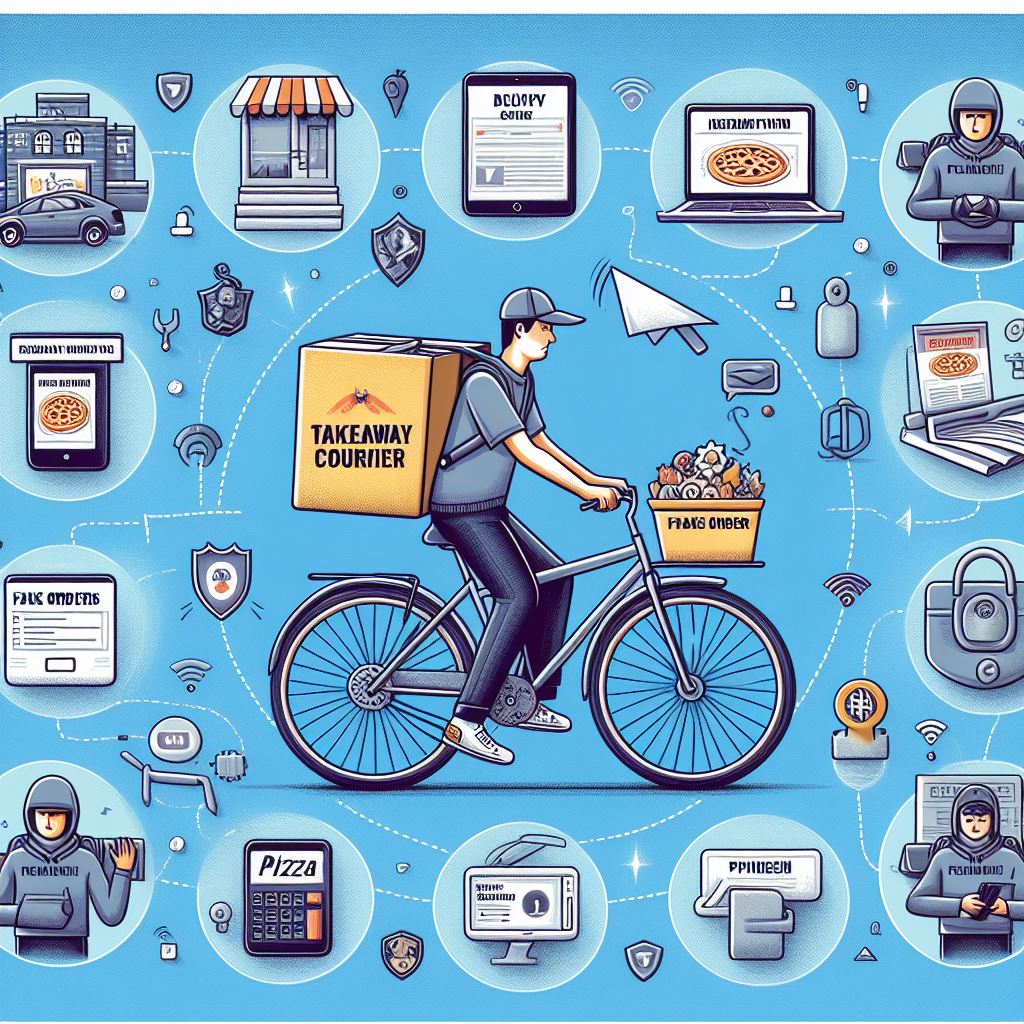外賣快遞員可能容易受到以下幾種詐騙。
外賣快遞員可能容易受到以下幾種詐騙:
假託客戶:詐騙分子可能會假扮成顧客下單外賣,但實際上沒有真正下單。當快遞員送達食物時,他們可能要求快遞員支付現金,聲稱他們將在稍後支付,但最終沒有付款。對快遞員造成損失。
虛假地址:一些詐騙分子可能提供虛假的送貨地址,例如不存在的建築物或空地。當快遞員抵達該地址時,發現沒有可以交付的客戶,從而浪費時間和成本。
支付詐騙:詐騙犯有時可能使用偽造的信用卡或支付方式下單,而當這些支付被發現是虛假的時候,快遞員可能會遭受支付取消或退款的損失。
被搶劫:在某些情況下,快遞員可能成為搶劫的目標,特別是當他們攜帶大量現金或貴重物品時。這種情況下,詐騙分子可能使用暴力或威脅來奪取財物。
近期在中國,外賣員經常遇到一種詐騙模式。有些客戶會下訂單點便宜的奶茶,並要求順便買兩條香菸。他們會承諾給予100元人民幣的小費。但當外賣員真的幫忙處理訂單時,客戶會突然關機,無法聯繫到他們。這些都是故意引誘快遞員進行變相消費的詐騙行為。
為預防這些詐騙,外賣快遞員可以通過以下方式保護自己:
1.確認訂單的真實性,特別是當客戶提供的資訊不確定時。
2.在網絡平台上查看和確認送貨地址的真實性。
3.對支付方式進行仔細檢查,特別是對於大筆金額的訂單。
4.保持警惕,特別是在高風險地區或時間進行送貨。
5.在可能的情況下,選擇使用安全的支付方式,例如在送貨時收取現金而不是事後支付。
Delivery couriers may be susceptible to several types of scams:
1. Impersonating customers: Scammers may pretend to be customers ordering delivery, but they haven't actually placed an order. When the courier delivers the food, they may demand the courier to pay cash, claiming they will pay later, but ultimately never do, causing losses to the courier.
2. False addresses: Some scammers may provide fake delivery addresses, such as non-existent buildings or vacant lots. When the courier arrives at the address, they find no one to deliver to, resulting in wasted time and costs.
3. Payment fraud: Scammers sometimes use forged credit cards or payment methods to place orders, and when these payments are found to be fraudulent, the courier may suffer losses due to canceled payments or refunds.
4. Robbery: In certain situations, couriers may become targets for robbery, especially when they carry large amounts of cash or valuable items. In such cases, scammers may use violence or threats to take the goods.
Recently in China, delivery couriers often encounter a scam pattern. Some customers would order cheap milk tea and ask to buy two pack of cigarettes as well, promising to give a $100 RMB tip. However, when the courier actually helps to process the order, the customer suddenly shuts down their phone, making it impossible to contact them. These are all deliberate attempts to induce couriers into disguised consumption scams.
To prevent these scams, delivery couriers can protect themselves by:
1. Verifying the authenticity of orders, especially when the customer-provided information is uncertain.
2. Checking and confirming the authenticity of delivery addresses on online platforms.
3. Carefully examining payment methods, especially for large orders.
4. Staying vigilant, especially when delivering in high-risk areas or times.
5. Opting for secure payment methods whenever possible, such as collecting cash on delivery instead of post-payment.




照片:DALLE3
- 1
- 2
- 3
- 4
